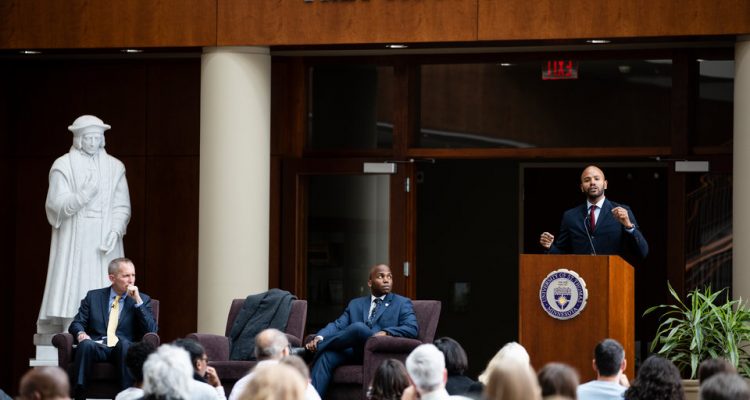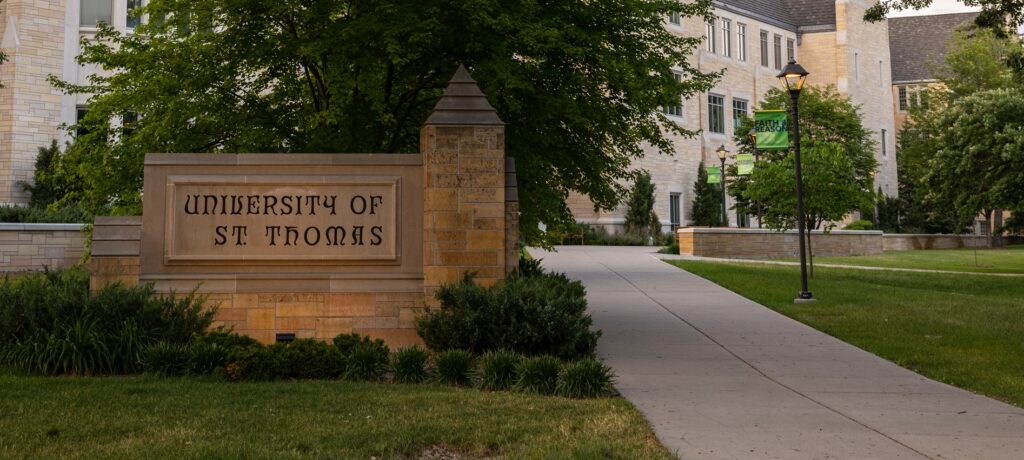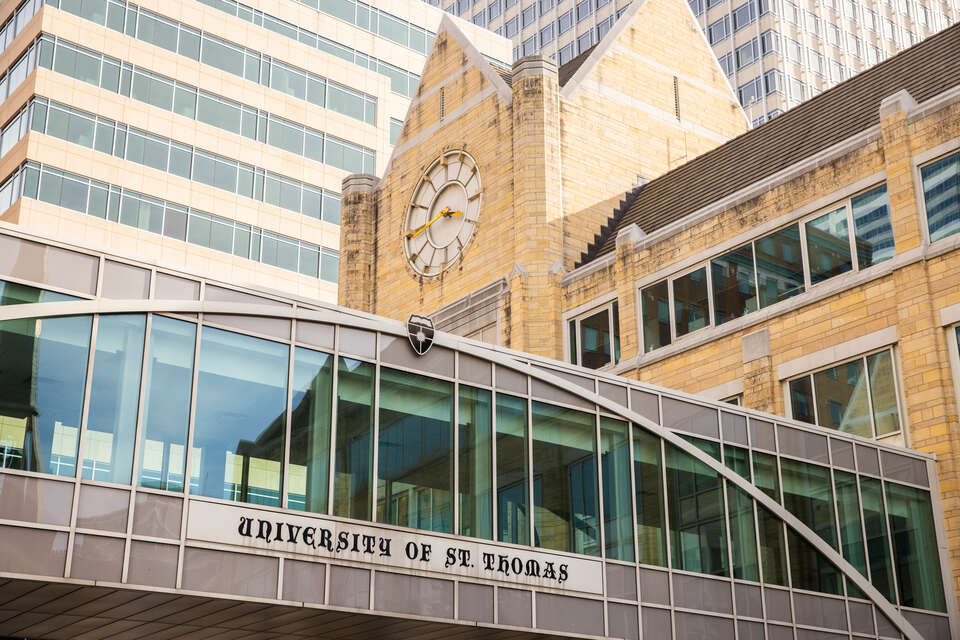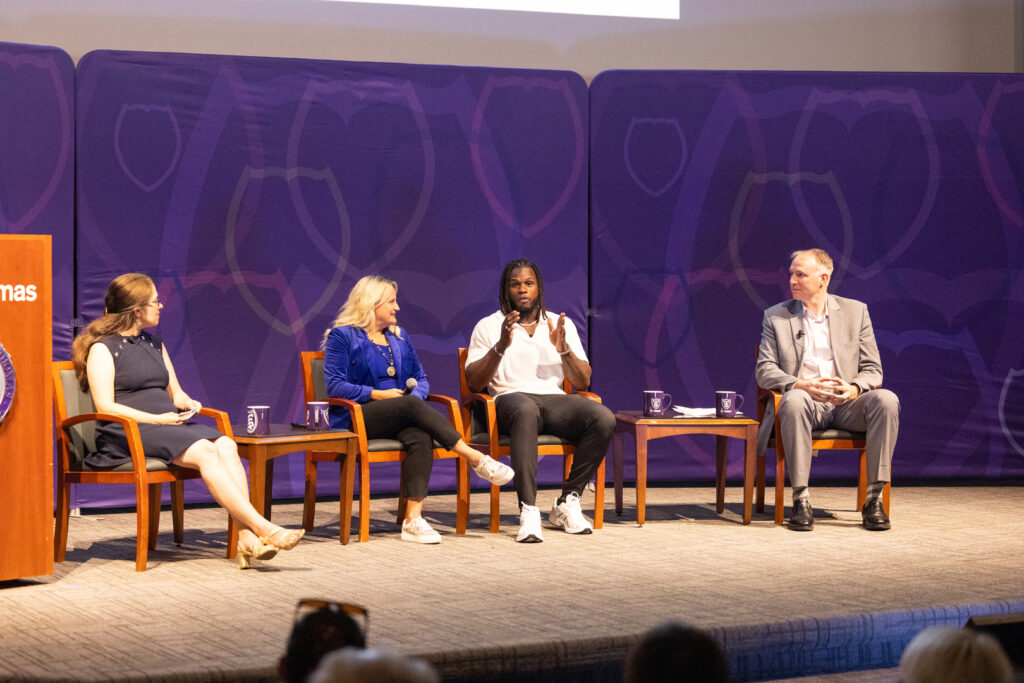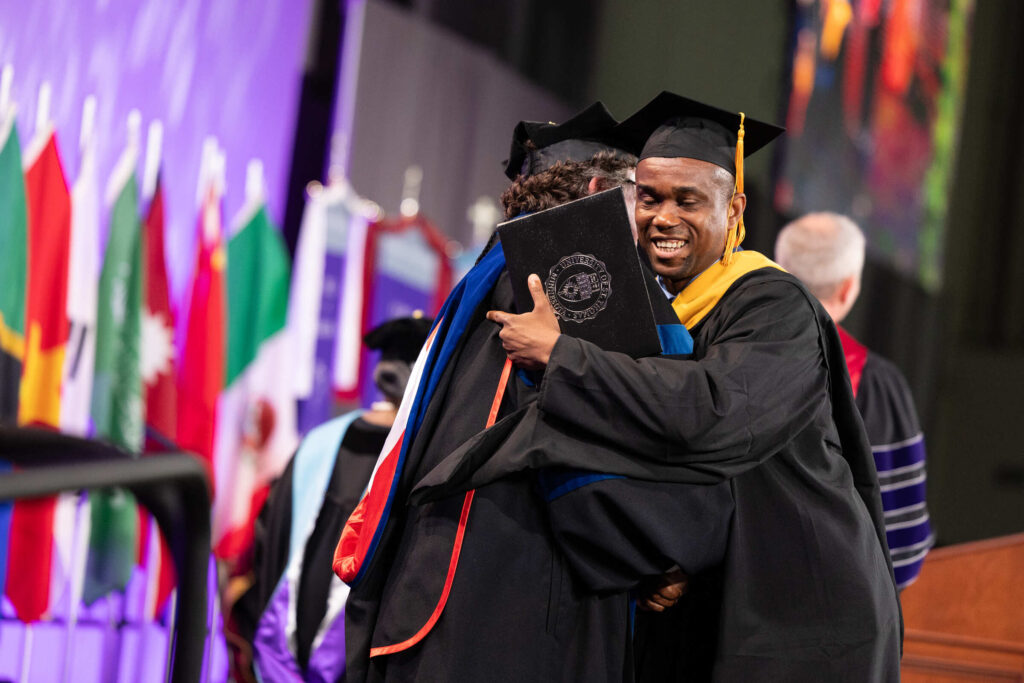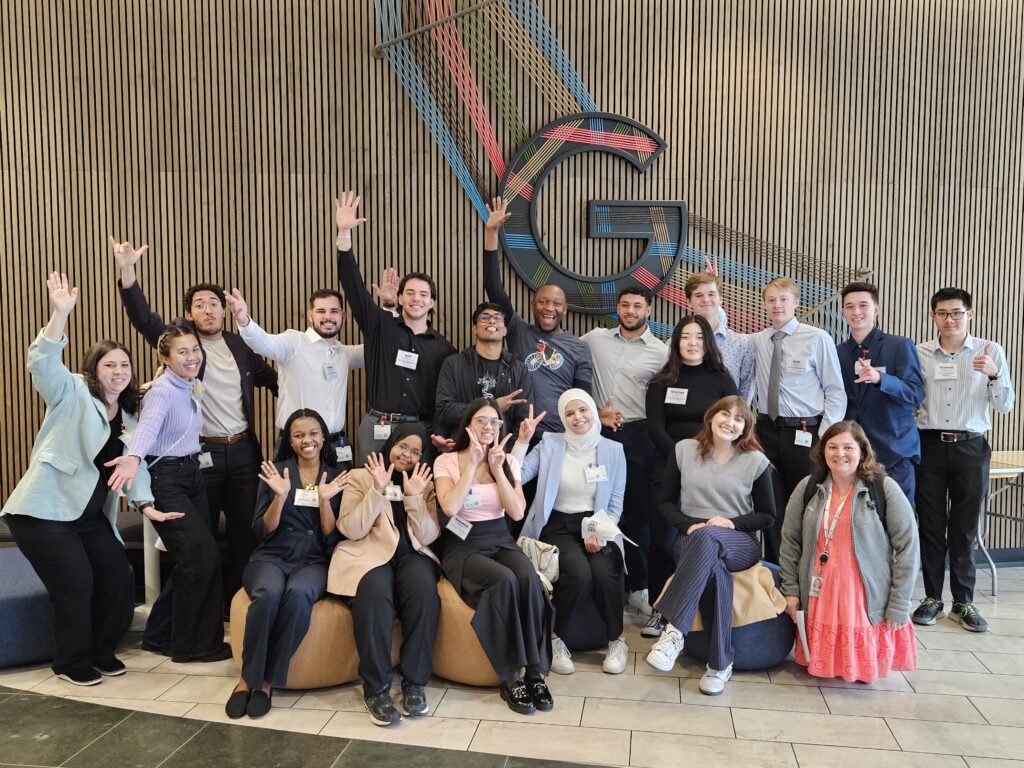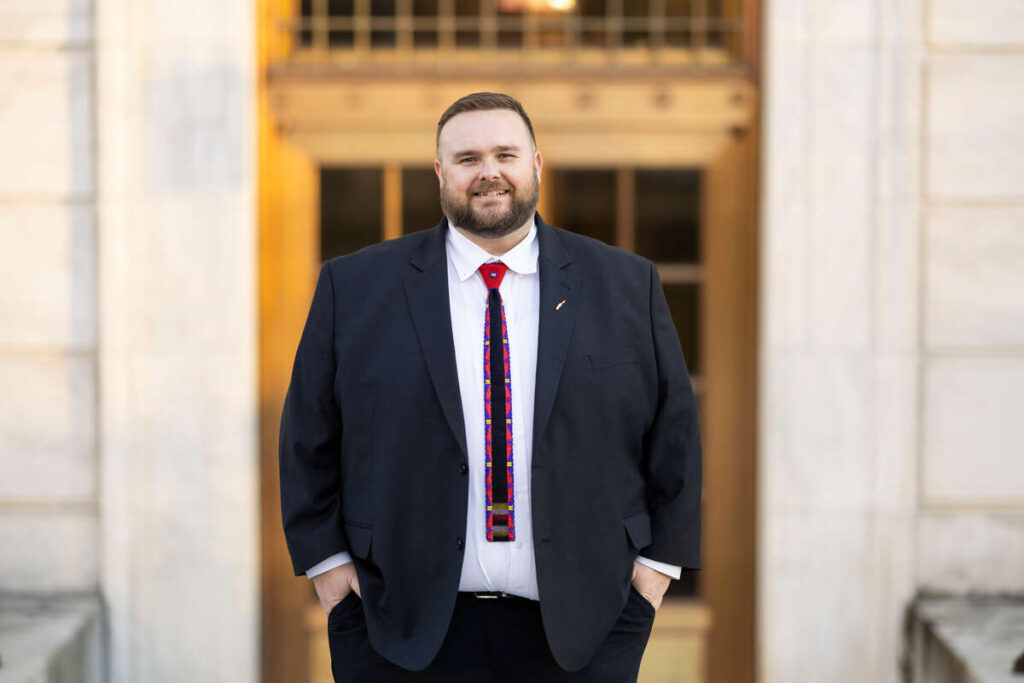The Terrence J. Murphy Institute hosted a packed atrium at the School of Law on Monday for "50 Years After the King Assassination: A Barometer Panel on Race and Justice." Featuring Dr. Peniel Joseph, director of the Center for the Study of Race and Democracy at the University of Texas at Austin, and St. Thomas deans Yohuru Williams (College of Arts and Sciences) and Robert Vischer (School of Law), the panel discussed a wide range of angles within the legacy of Dr. King.
Joseph is a frequent national commentator on issues of race, democracy and civil rights. He is also the author of the award-winning books Waiting ‘Til the Midnight Hour: A Narrative History of Black Power in America and Dark Days, Bright Nights: From Black Power to Barack Obama.
Along with Williams and Vischer, Joseph discussed in particular King’s ideas of radical citizenship and the beloved community. Vischer pointed out that – from the years 1963 to 1965 – the rate of disapproval of King by Americans increased dramatically; Vischer said this had to do with factors including his outspokenness against the Vietnam War and his increasing focus on race issues in northern cities, particularly Chicago. Joseph pointed to King’s pivot over those years, and until his death, calling beyond radical reform to radical citizenship by all Americans.
“King loves the country enough to criticize American exceptionalism. … He tells everyone who’s willing to listen the truth. That means there’s no more standing ovations in the final years of his career … when you’re speaking truth to power and talking about white supremacy, white privilege,” Joseph said. “He was saying it’s not about the absence of systems of oppression, it’s about the presence of … an equality of outcomes.”
Looking back over the 50 years since King’s death, Joseph spoke about a movement by the American government away from the vision King envisioned of a beloved community.
“Part of the great society is money for crime that switches over to this notion to mass incarceration,” he said. “All the money that should have gone into anti-poverty efforts where we would never have to think about black boys, girls, men, women being killed and slaughtered by the police … all that money went into massive prison construction and a punishment industry focused on black and brown bodies. The country has responded to King’s call by creating the world’s biggest prison system, ever.
“We love racial segregation and economic inequality in the United States. It is our historic truth,” Joseph added. “King tried to be transformational and conceptualize a different kind of American democracy, that for the first time would not be predicated on the abuse of black body. … They did not succeed. What we can do in our own time is continue that work. It requires us to be truthful about the political climate we live in … about how we feel toward each other as a community. We can’t just blame the president of the United States about why we’re angry. … This has been stewing for decades and decades and decades. … We have to be truthful about why we live in this kind of environment, and what citizenship means for black people.”
Vischer said a major aspect of King’s concept of radical citizenship is a willingness to look at ourselves, not just at other parts of the country we perceive to be worse in dealing with racial issues. He pointed to the housing ownership gap between whites and blacks in the Twin Cities, which is the worst in the country.
“We’re less comfortable with King when he starts asking pointed questions about the inequality in our own communities,” Vischer said. “When he asks what we’re doing about that inequality.”
Williams – who was in Rome at St. Thomas’ Bernardi Campus on the actual 50th anniversary of Dr. King’s death – talked about the connection of historical context to the contemporary United States.
“Europeans have a very interesting view of our present political context,” Williams added. “They wondered aloud how a nation that could give birth to someone as eloquent as Dr. King could have a gun problem as rampant as we do? … That could be so wholly celebratory of a declaration of human independence, yet does everything it can at every turn to deny that independence.”
Joseph built on that concept of intersection of people around the globe, pointing toward King’s concept of a “global house” well before modern factors of globalization tied citizens of the world more closely together than ever before.
In addressing audience questions of what actions citizens can most actively do right now to move toward King’s legacy, Joseph said, “educate, organize and agitate.
“The biggest thing you can do is educate yourself about what this idea of racial privilege means,” he added. “And use that education in whatever community you’re in. If you do that you’re going to be much better off than most people.”
